10 Top Prebiotic Foods for Gut Health, Plus 10 More You Shouldn’t Skip
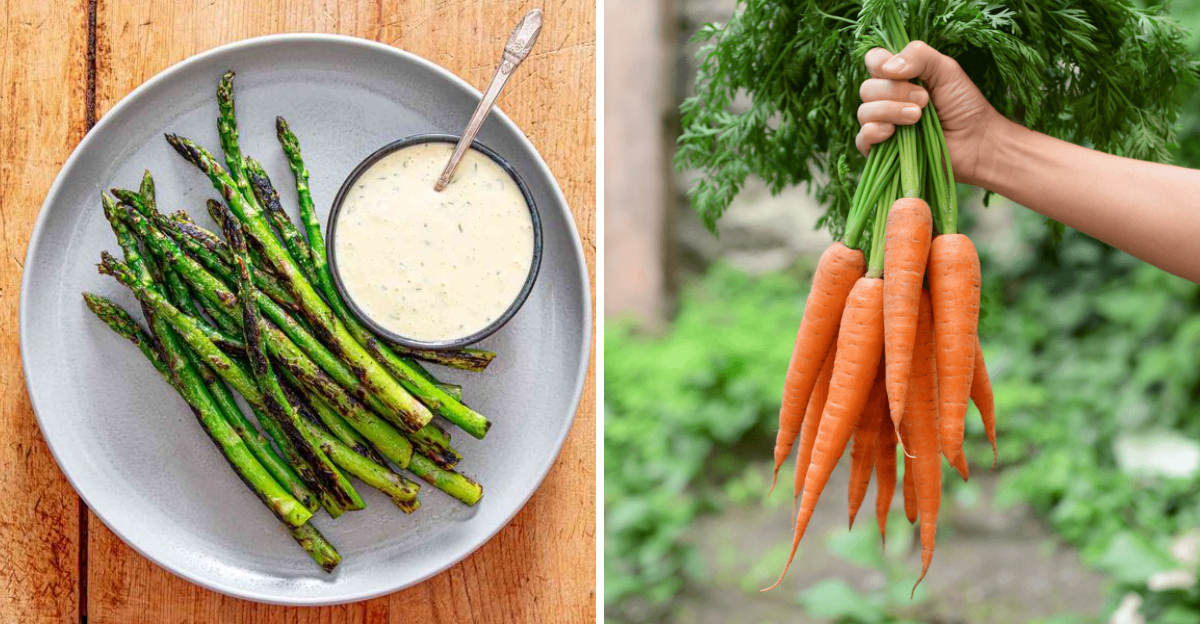
Explore the world of prebiotic foods with this detailed guide on the top 10 prebiotic foods essential for gut health, and 10 additional ones you shouldn’t ignore. Prebiotic foods feed the beneficial bacteria in your gut, supporting digestion and overall health. Incorporating these foods into your diet can promote a balanced gut microbiome and enhance your well-being.
1. Chicory Root
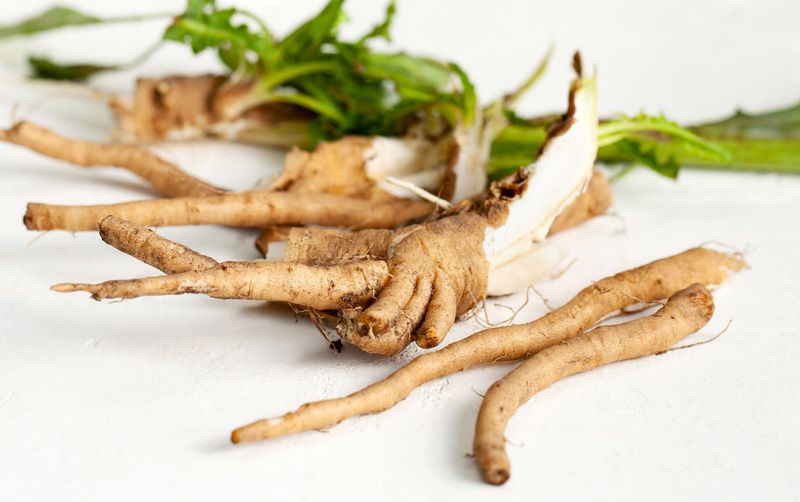
Chicory root is often celebrated for its high inulin content, a type of fiber renowned for its prebiotic qualities. This root helps nourish beneficial gut bacteria, promoting digestive health and regularity. Consuming chicory root can aid in maintaining a balanced gut microbiome, which is essential for overall well-being. Besides its health benefits, chicory root is also commonly used in coffee substitutes, providing a caffeine-free alternative. Did you know? Chicory has been cultivated since ancient times, valued not just for its roots but also for its vibrant blue flowers.
2. Jerusalem Artichokes (Sunchokes)
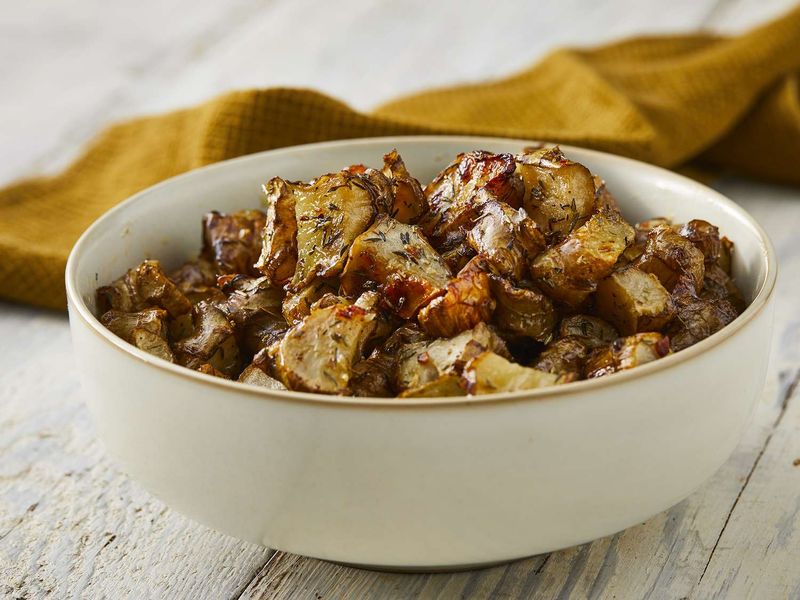
Jerusalem artichokes, or sunchokes, are packed with inulin, making them a powerful prebiotic food. They significantly boost Bifidobacteria in the gut, enhancing digestive health. With their nutty flavor, they add an interesting twist to various dishes. Fun fact: These tubers aren’t actually related to artichokes; they belong to the sunflower family. Including them in your diet can support a thriving gut microbiome. Whether eaten raw or cooked, Jerusalem artichokes are a versatile addition to salads or stir-fries.
3. Garlic
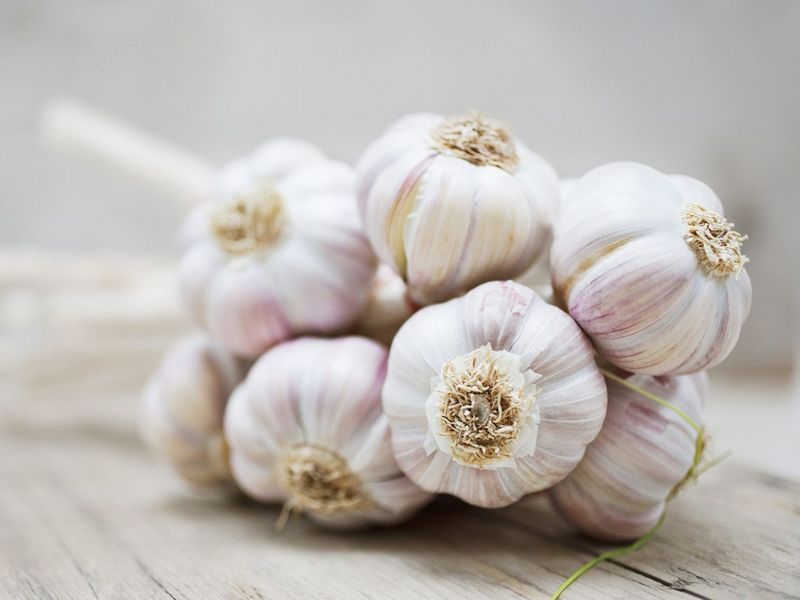
Garlic is much more than just a flavorful addition to meals. It contains inulin and fructooligosaccharides (FOS), which stimulate the growth of good bacteria. This pungent bulb has been used for centuries for its array of health benefits. Regular consumption can bolster gut health and immunity. Its unique compounds act as natural antibiotics and antioxidants. Whether enjoyed raw, roasted, or sautéed, garlic remains a staple in global cuisines. Did you know? In ancient Egypt, laborers were fed garlic to enhance endurance and strength.
4. Onions
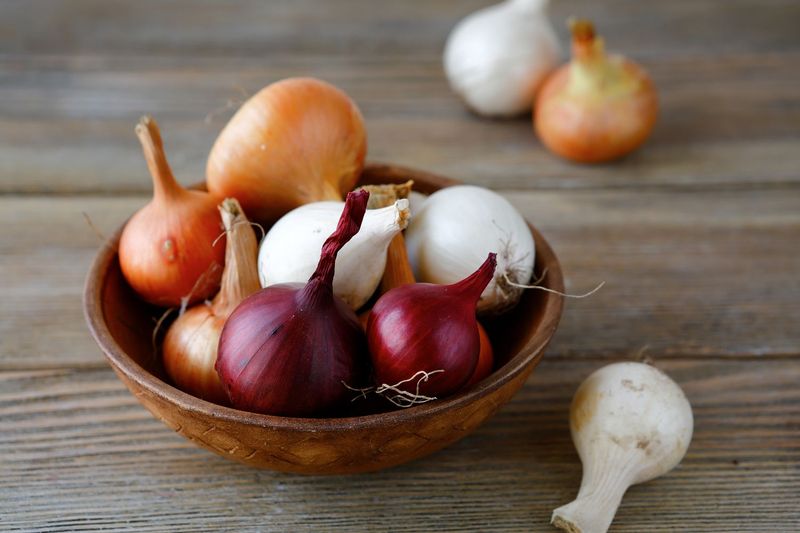
Onions, whether raw or cooked, provide fructooligosaccharides (FOS) and natural prebiotic compounds. These compounds support digestion and immunity, making onions a versatile and essential ingredient in many dishes. Their unique flavor enhances a wide range of recipes, from soups to salads. Historically, onions have been valued not just for culinary purposes, but for their medicinal properties as well. Including onions in your diet can encourage a healthy gut microbiome, contributing to overall wellness.
5. Leeks
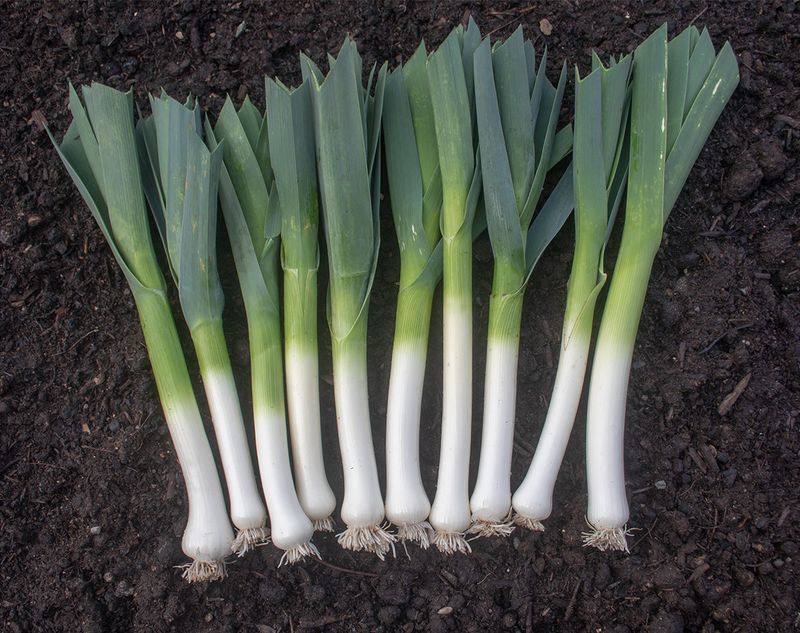
Closely related to garlic and onions, leeks are rich in inulin, offering excellent support for gut health. Best consumed raw or lightly cooked, leeks add a subtle onion-like flavor to dishes. They have been cherished in European cuisine for centuries, often featured in soups and stews. Leeks not only support digestion but also provide a good source of vitamins and minerals. Their mild taste and versatility make them a favorite among chefs and home cooks alike.
6. Asparagus
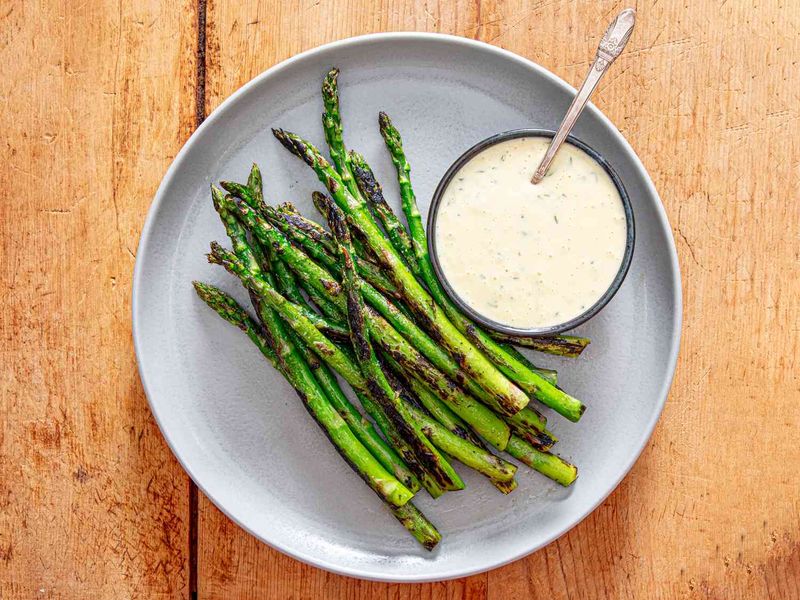
Asparagus offers valuable prebiotic fibers that promote a healthy digestive system. Its detoxifying properties further support overall digestive function, making it a nutritious addition to any diet. The rich green spears are often associated with springtime meals and can be prepared in numerous ways. From roasting to grilling, asparagus is versatile and flavorful. Historically, asparagus has been prized for its distinct taste and health benefits, dating back to ancient Roman times.
7. Bananas (Especially Slightly Green)
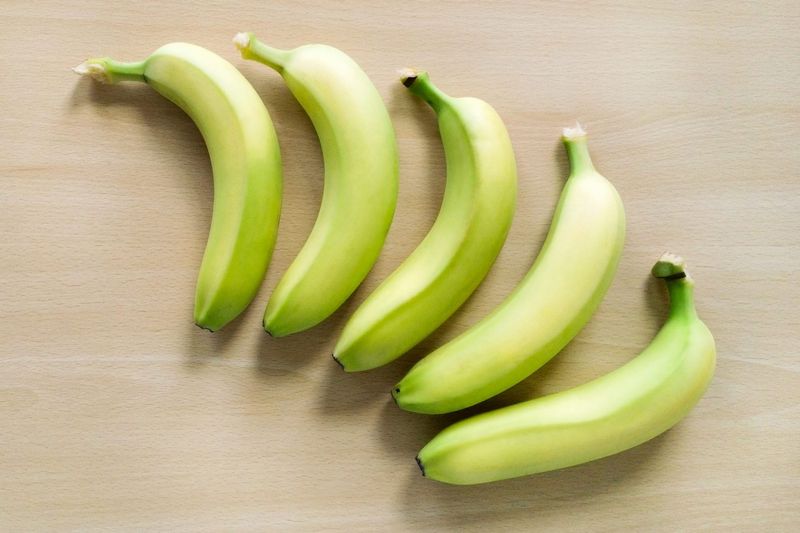
Unripe bananas contain resistant starch, a type of fiber that ferments in the gut and feeds beneficial microbes. These slightly green bananas offer more than just a sweet snack; they support gut health in a unique way. As they ripen, the starch converts to sugar, but when slightly green, they provide an excellent source of prebiotics. Bananas are not only convenient and portable but also nutritious, providing vitamins and minerals essential for health.
8. Dandelion Greens
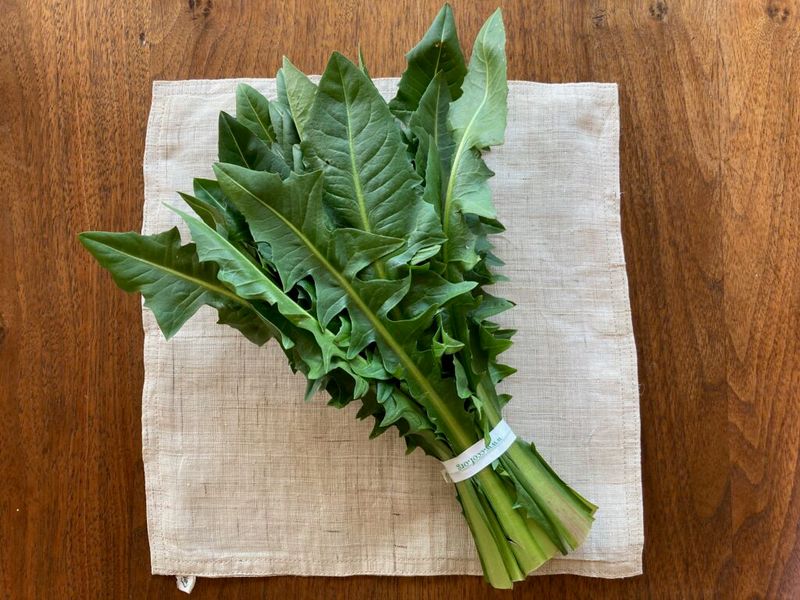
Dandelion greens, though bitter, are nutrient-dense and loaded with prebiotic fiber. They support liver function and provide numerous vitamins and minerals. Often overlooked, dandelion greens can be added to salads or smoothies to boost nutritional intake. Historically used in traditional medicine, they are known for their cleansing properties. With their vibrant leaves, dandelion greens brighten up any dish while promoting a healthy gut.
9. Chicory-Based Coffee Substitutes

Chicory-based coffee substitutes offer a caffeine-free alternative that contains prebiotic inulin naturally derived from chicory root. This makes them an excellent choice for those looking to reduce caffeine intake while supporting gut health. The rich, roasted flavor of chicory coffee is enjoyed by many, providing a satisfying coffee-like experience without the jitters. These substitutes have a long history, especially popular in New Orleans-style coffee culture.
10. Barley (Whole or Sprouted)
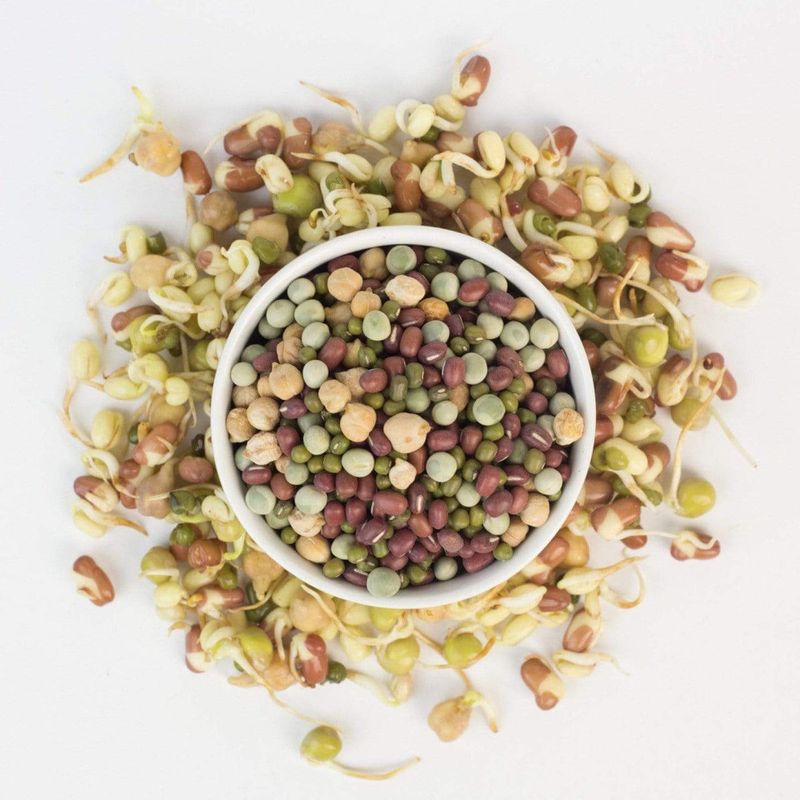
Barley, whether whole or sprouted, contains beta-glucan and resistant starch that feed gut flora. This ancient grain not only supports digestive health but also helps maintain healthy blood sugar levels. Barley has been cultivated for thousands of years, enjoyed in various forms such as soups, stews, and breads. Its nutty flavor adds depth to many dishes. Including barley in your diet can enhance gut health while providing essential nutrients and fiber.
11. Apples
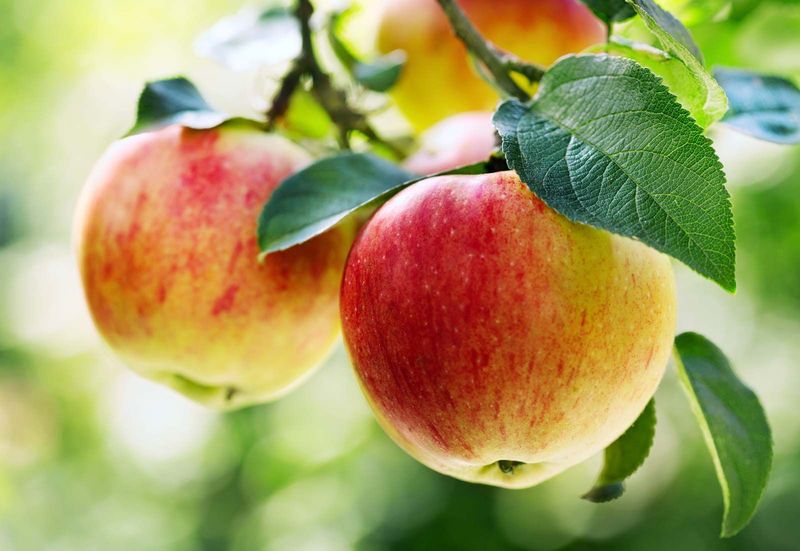
Apples, especially with the skin on, contain pectin, which acts as a mild prebiotic and supports digestion. This popular fruit is not only delicious but also promotes gut health. The saying ‘an apple a day keeps the doctor away’ highlights its health benefits, known for centuries. Apples provide a rich source of fiber, vitamins, and antioxidants. Whether eaten raw, baked, or in juice form, they are a versatile addition to any diet, supporting overall wellness.
12. Oats
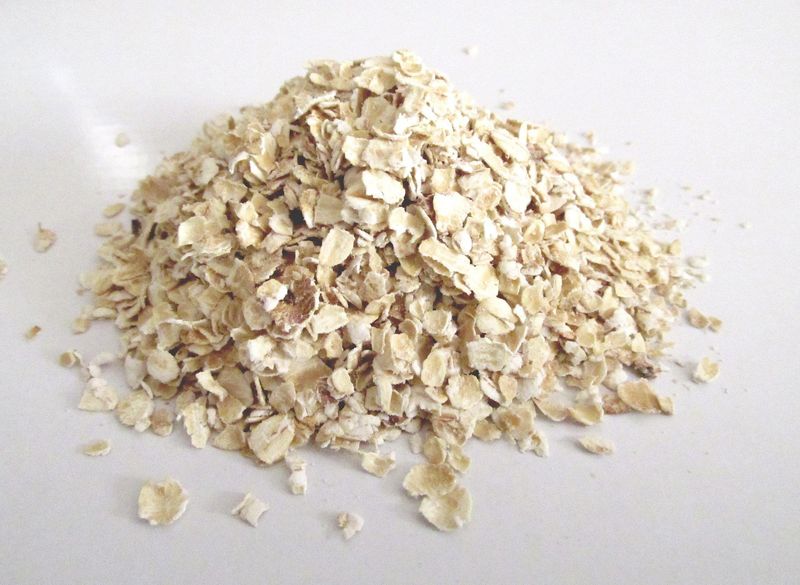
Oats contain beta-glucan and resistant starch, supporting both gut bacteria and heart health. As a staple breakfast food, oats offer a hearty start to the day. Their soluble fiber helps lower cholesterol levels, while the prebiotic content nourishes gut flora. Oats can be enjoyed in various forms, from porridge to granola. Historically, oats have played a key role in diets worldwide, valued for their nutritional benefits. Including oats in your daily meals promotes a healthy gut and heart.
13. Cabbage (Especially Fermented, Like Sauerkraut)
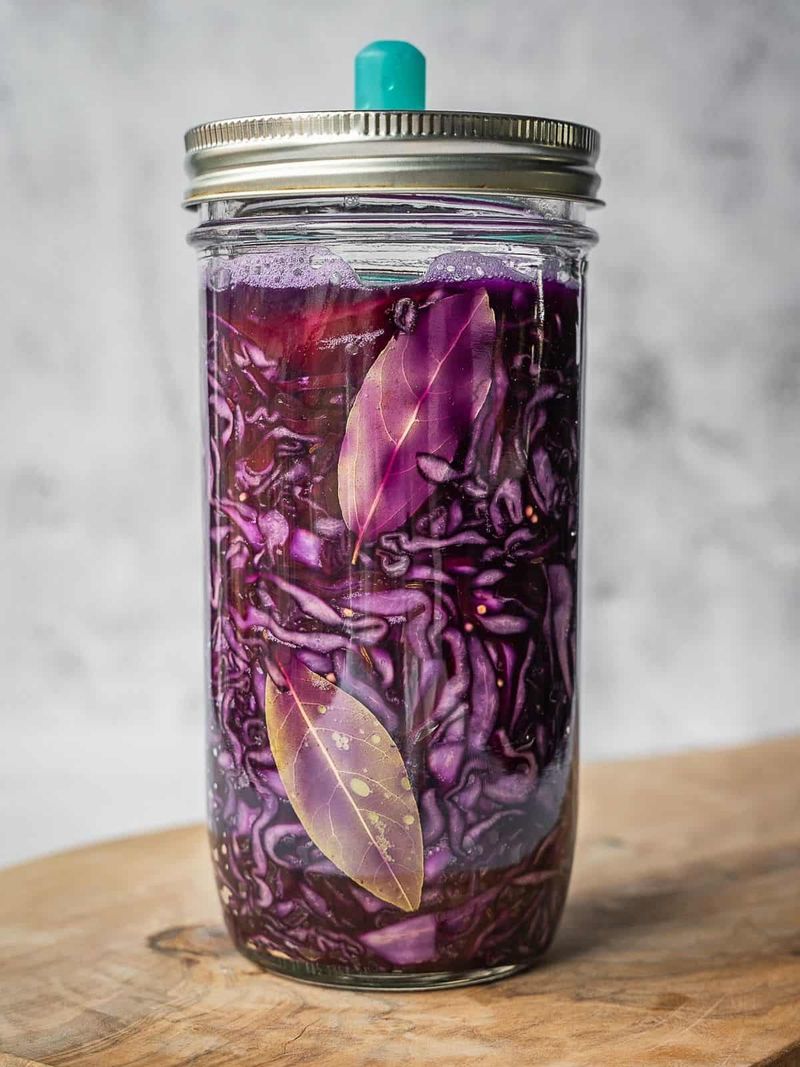
Cabbage, especially in its fermented form like sauerkraut, combines prebiotic and probiotic effects. Raw cabbage offers fiber, while fermentation enhances gut health by introducing beneficial bacteria. This makes sauerkraut an excellent addition to any diet. Cabbage has long been a dietary staple, used in dishes ranging from coleslaw to soups. Its versatility and health benefits make it a favorite vegetable for many. Enjoying fermented cabbage supports a balanced gut microbiome and digestion.
14. Cocoa (Unsweetened)
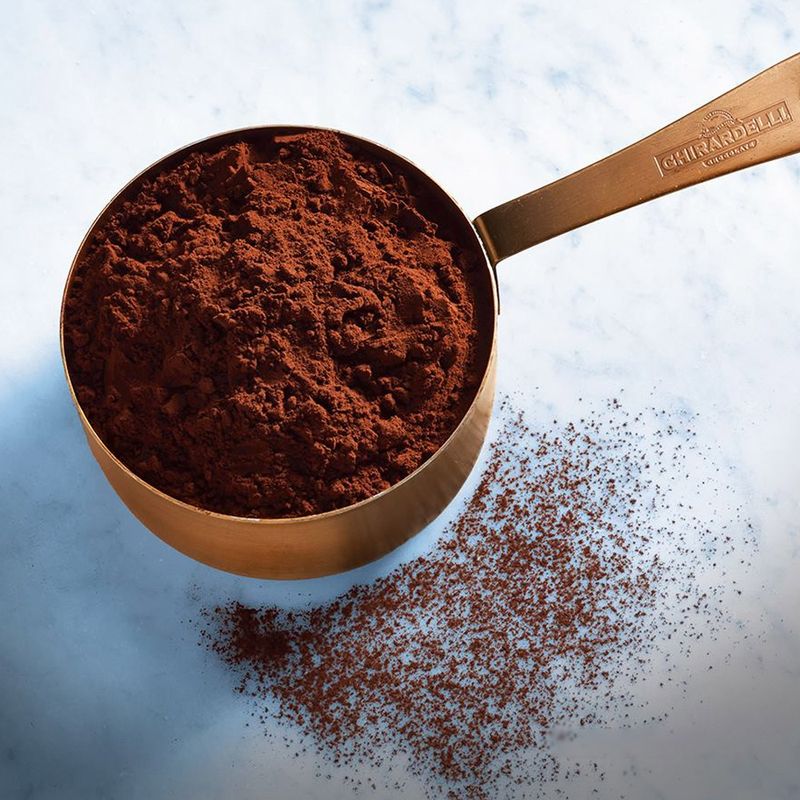
Raw or minimally processed cocoa contains polyphenols that act as prebiotics and help reduce inflammation. Enjoying cocoa in its unsweetened form offers a rich source of antioxidants and health benefits. Historically, cocoa has been treasured for its mood-enhancing properties and delicious flavor. Whether used in baking or as a warm beverage, cocoa provides a delightful way to support gut health. Its unique compounds make it not just a treat, but a beneficial addition to your diet.
15. Flaxseeds
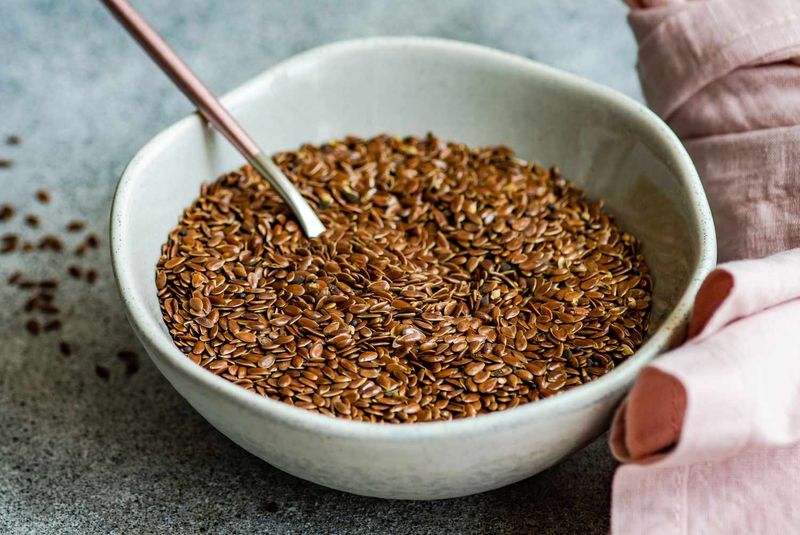
Flaxseeds are rich in both soluble and insoluble fiber, supporting digestion and feeding beneficial bacteria. These tiny seeds pack a nutritional punch, offering omega-3 fatty acids and lignans. Adding flaxseeds to your meals can enhance gut health and provide various health benefits. They are versatile, easy to incorporate into smoothies or baked goods. Flaxseeds have been cultivated for thousands of years, known for their health-promoting properties. Including them in your diet supports a healthy gut and heart.
16. Seaweed
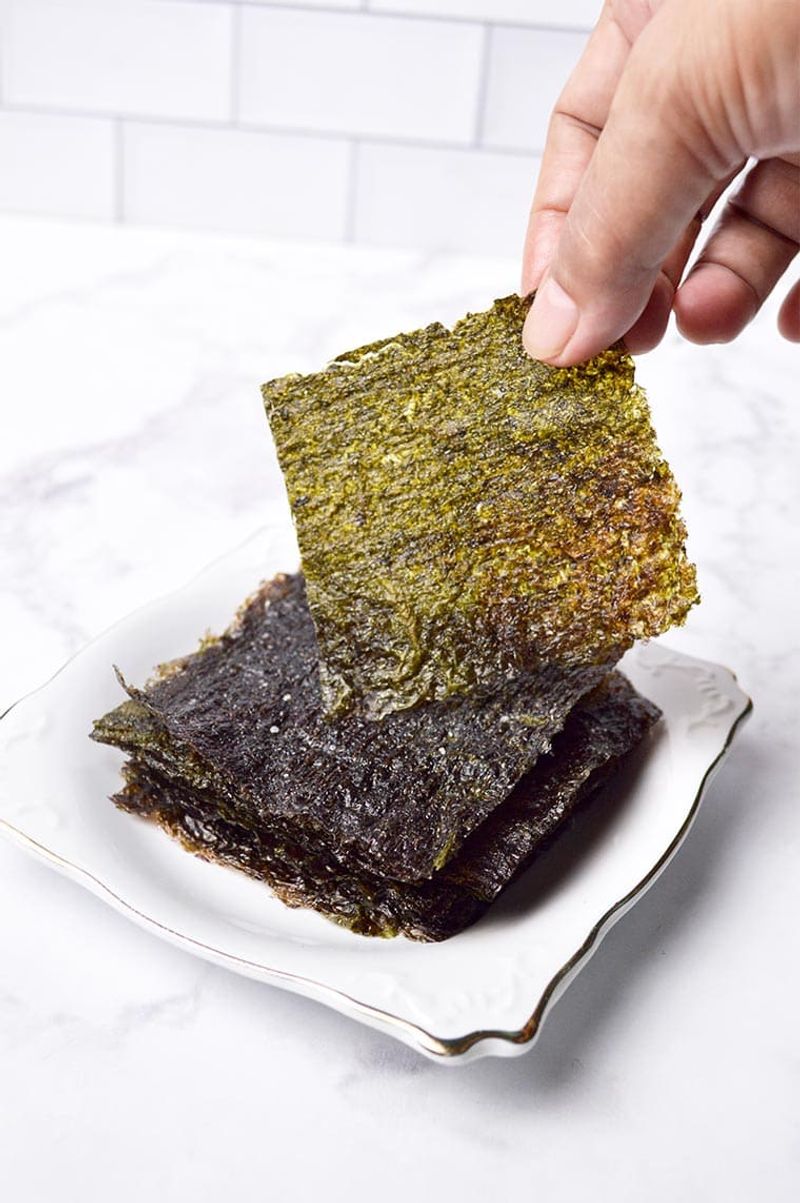
Seaweed is an underrated source of prebiotics, offering fucoidans and other polysaccharides. It also supports thyroid health due to its iodine content. Seaweed has been a staple in Asian cuisines for centuries, valued for its unique taste and nutritional profile. Whether enjoyed as a salad or snack, seaweed provides essential nutrients while promoting a healthy gut. Its diverse varieties, from nori to wakame, offer different flavors and textures to explore in culinary dishes.
17. Cooked and Cooled Potatoes

When potatoes are cooked and then cooled, they form resistant starch, which becomes fuel for healthy gut microbes. This simple preparation method enhances their prebiotic properties, making them a valuable addition to meals. Potatoes have been a dietary staple in many cultures, appreciated for their versatility and nutrition. Enjoying them as a cooled side dish or salad can support gut health. The resistant starch in cooled potatoes provides a unique way to enhance gut flora.
18. Burdock Root
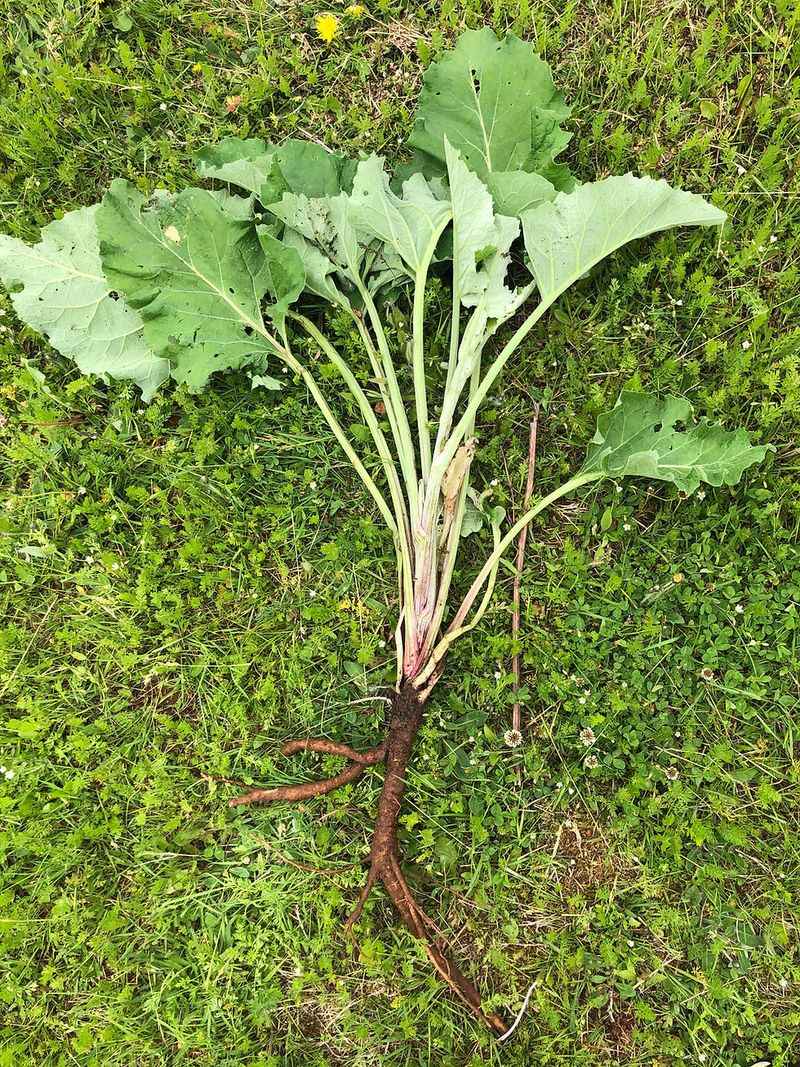
Burdock root, used in Japanese cuisine, is a strong source of inulin and known for its cleansing, gut-supportive effects. This root vegetable adds a distinct flavor to dishes, often featured in stews and soups. Beyond its prebiotic benefits, burdock root is celebrated for its potential detoxifying properties. It has been used in traditional medicine for centuries, offering various health benefits. Incorporating burdock root into your diet supports a balanced gut microbiome.
19. Carrots
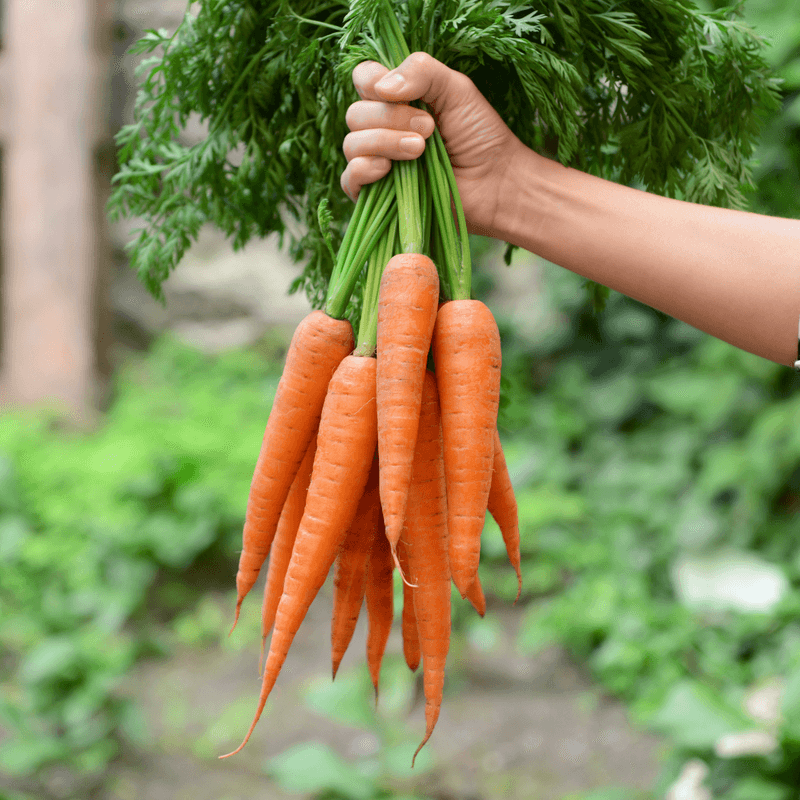
Carrots are a fiber-rich root vegetable that encourages the growth of beneficial bacteria. Their sweet taste and crunchy texture make them a popular snack and ingredient in many dishes. Rich in beta-carotene and vitamins, carrots support not just gut health but also overall vitality. They can be enjoyed raw, roasted, or in soups. Historically, carrots have been cultivated for their medicinal and nutritional benefits, a true staple in diets worldwide.
20. Legumes (Lentils, Chickpeas, Black Beans)
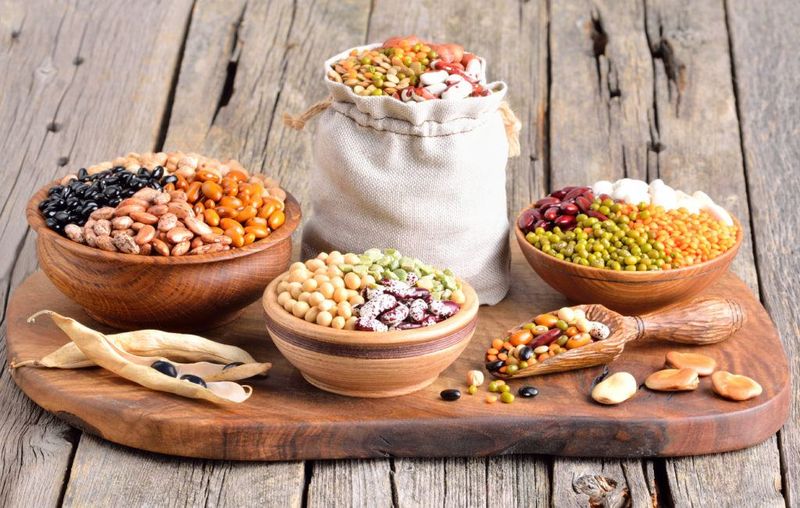
Legumes, including lentils, chickpeas, and black beans, are loaded with fiber, resistant starch, and nutrients. They promote diversity in your gut microbiome while providing a rich source of protein. These versatile ingredients are a cornerstone in many diets, offering a plant-based protein alternative. Legumes have been consumed for centuries, valued for their nutritional density and health benefits. Incorporating them into your meals supports a thriving gut environment and overall wellness.
